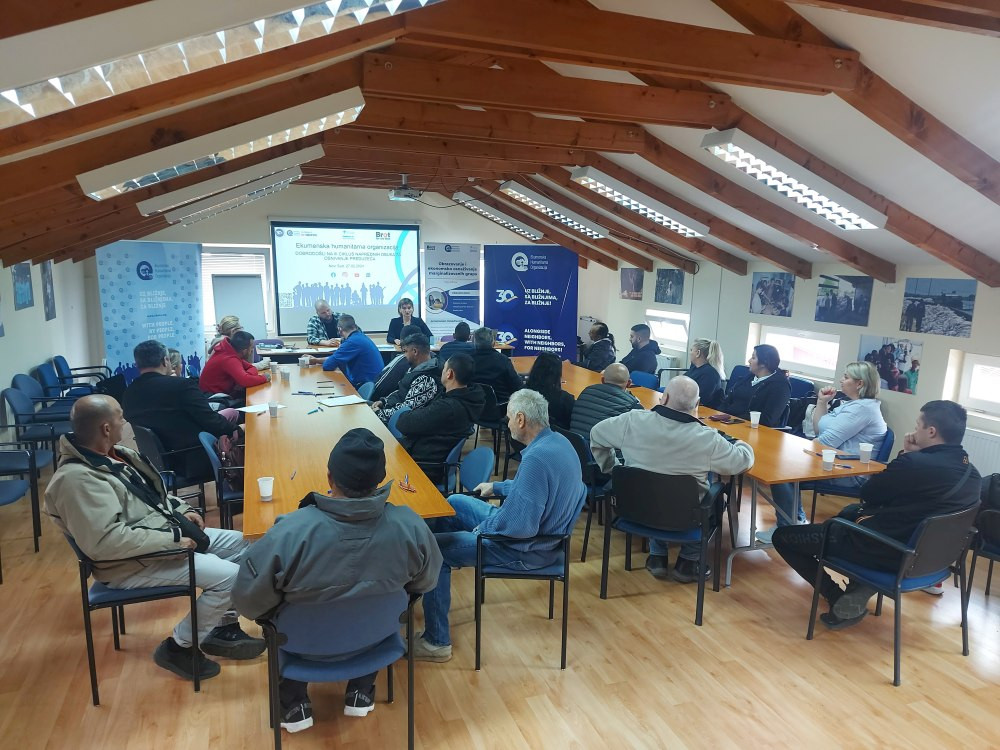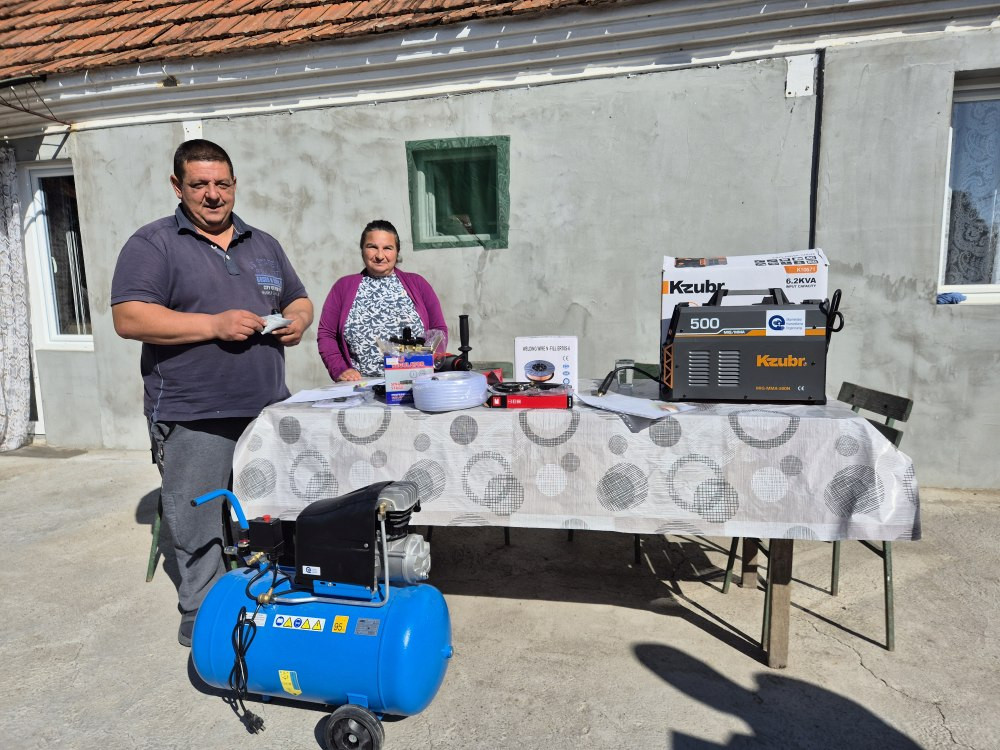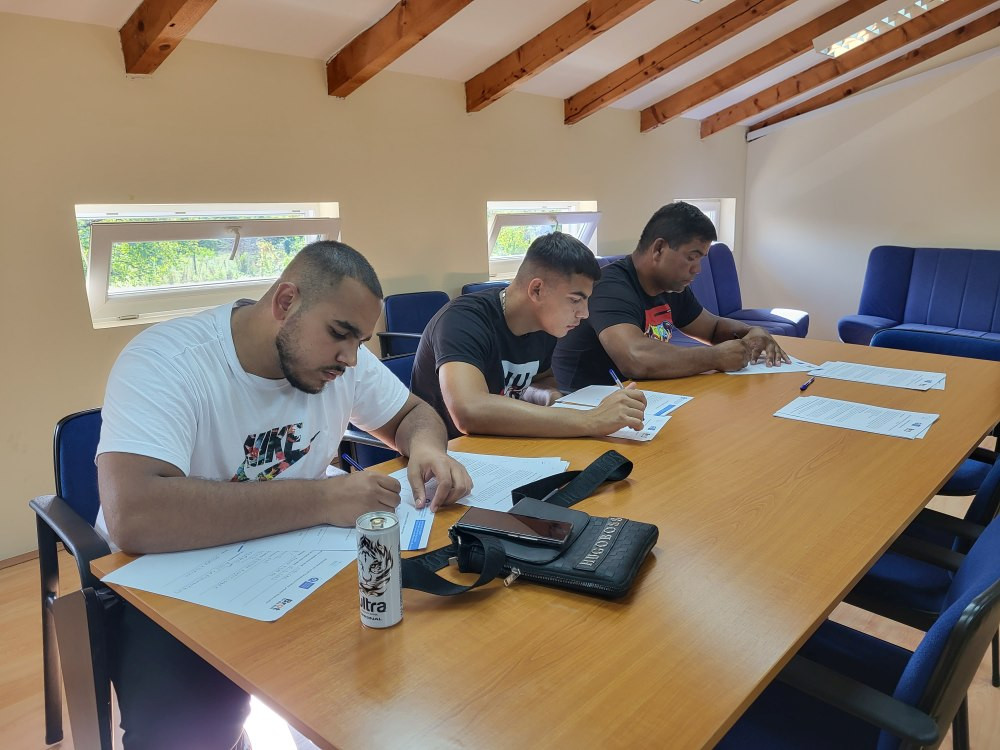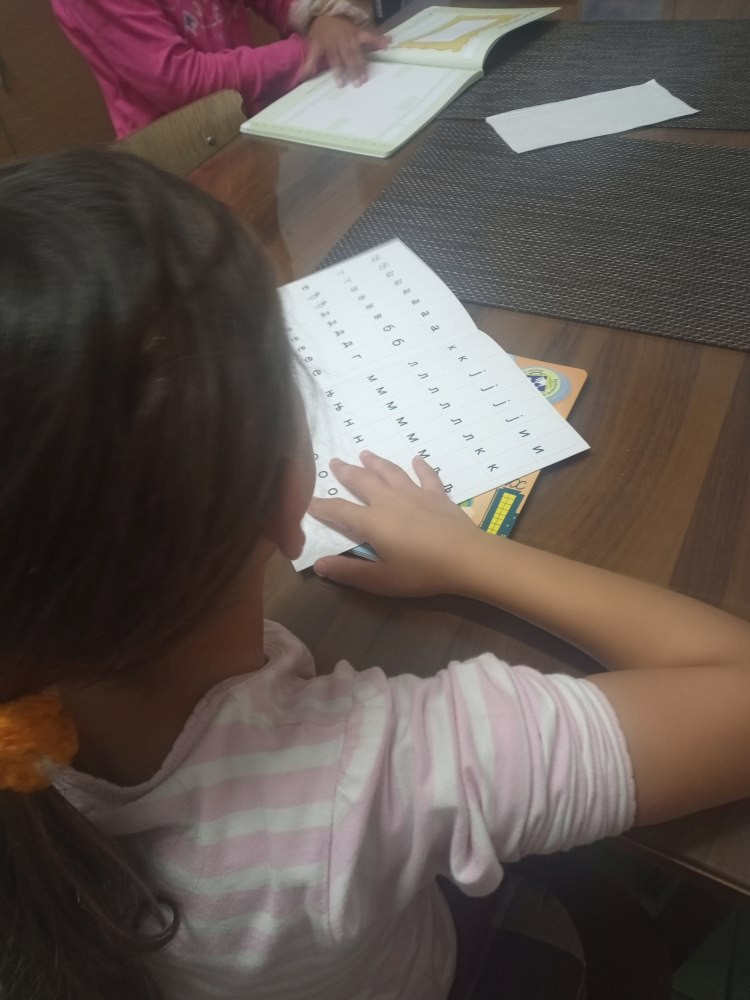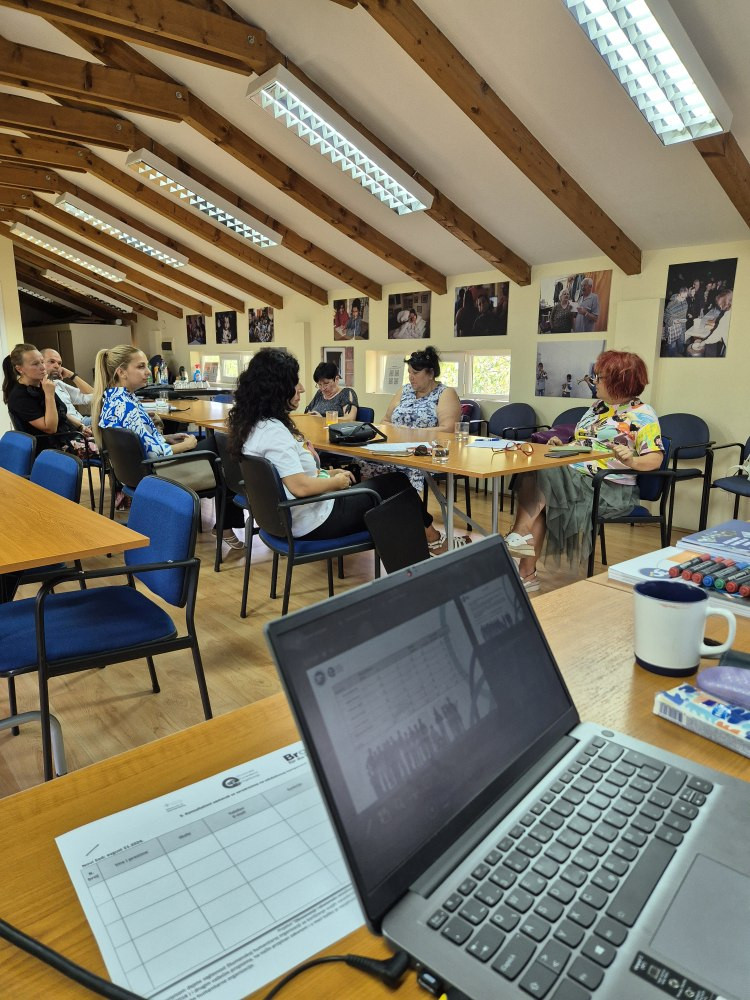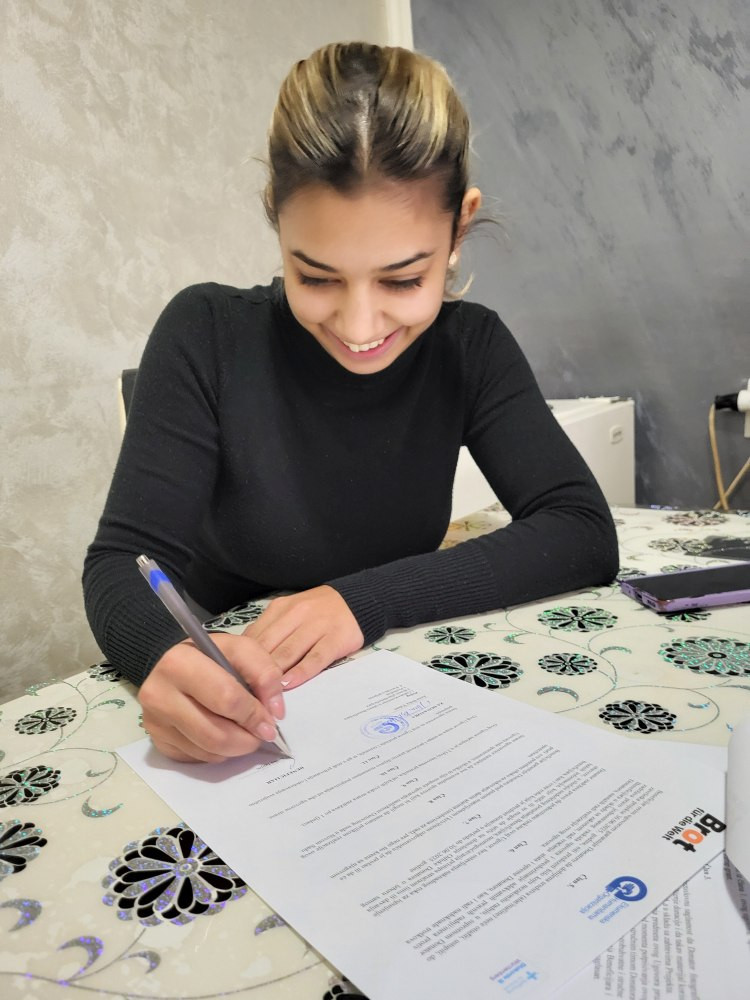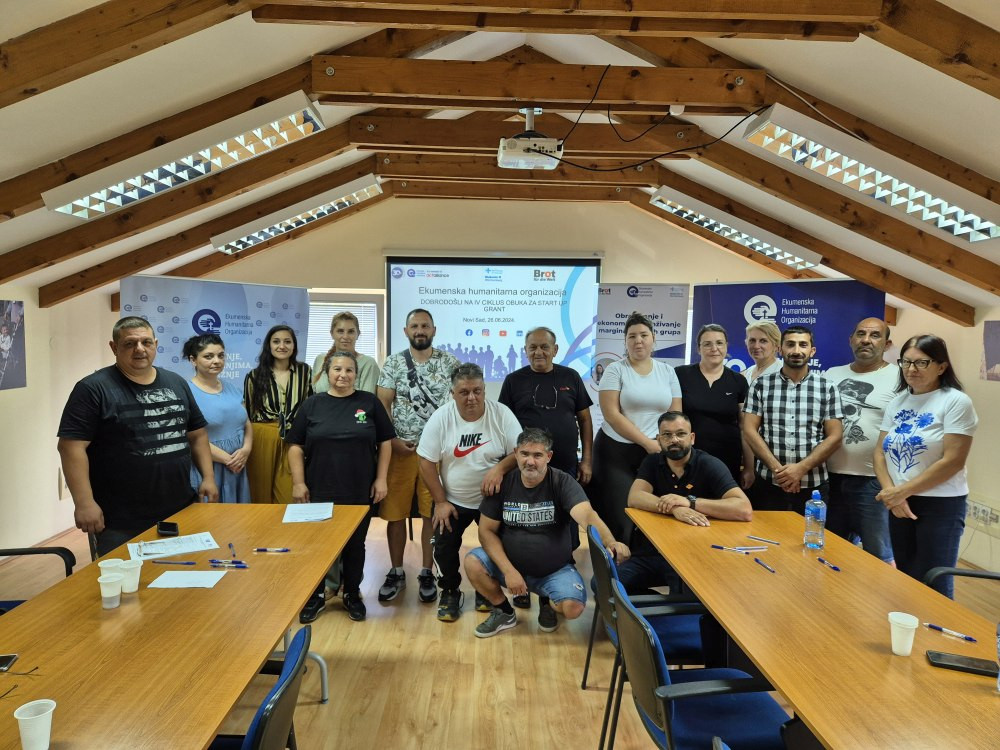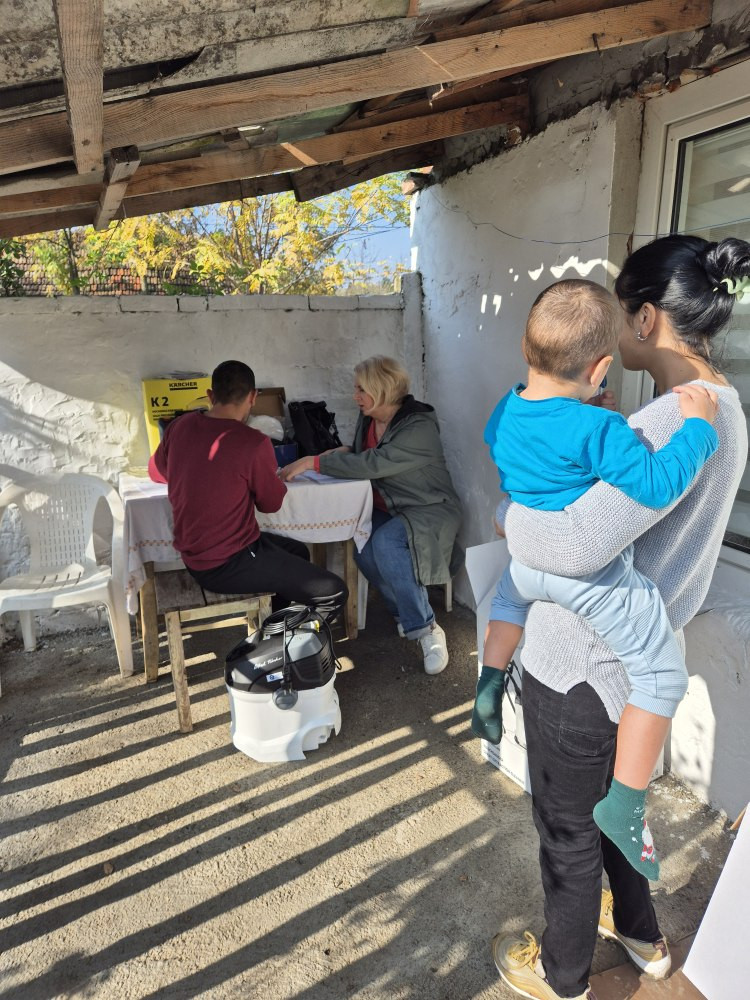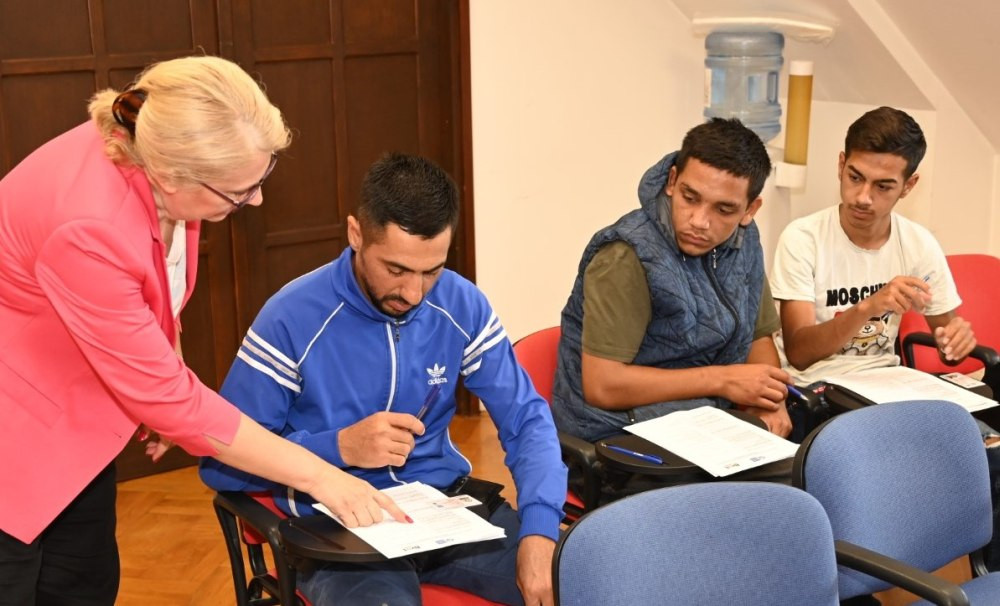Education and Economic Empowerment of Marginalized Groups, continuation
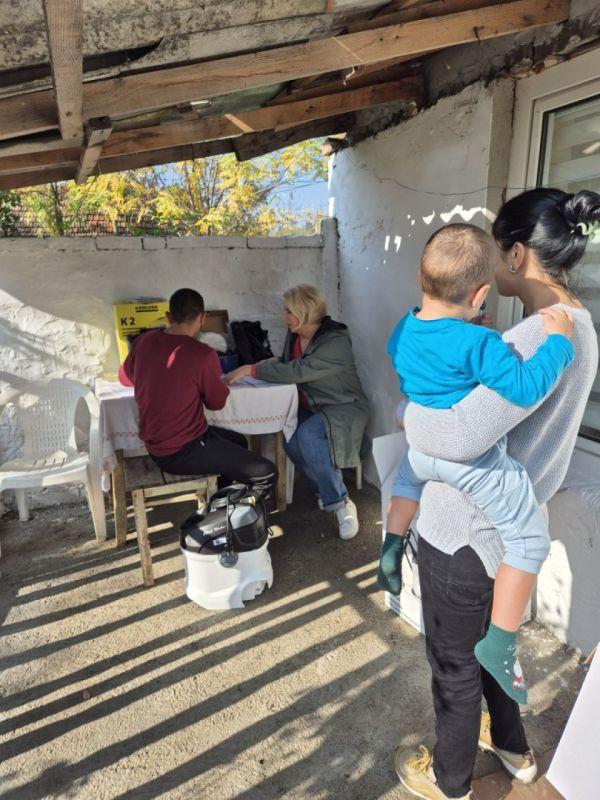
With the aim of improving the socio-economic status of marginalized groups in Vojvodina, EHO implemented a three-year project has been since 2022. Through two interlinked components – economic empowerment and educational integration – the project provides support to families and children.
Following a successful first cycle (2022–2025), the project shall continue from the 1st July 2025 until 30th June 2028, aiming to further strengthen marginalized groups, expanding its reach, and improving the quality of support provided.
Economic Empowerment
This component enables beneficiaries to develop entrepreneurial skills, improve their businesses, and secure economic stability for themselves and their families. Key activities include:
-
Business plan training – introducing candidates to the basic elements and characteristics of business plans, developing practical planning skills, and preparing their own plans as the basis for applying for grants.
-
Start-up grants – up to €800 (in RSD equivalent) for purchasing machinery and equipment necessary to start or expand a business in production, crafts, or services.
-
Advanced business development training – covering marketing, planning, financial management, legal aspects of self-employment, company registration, opportunities for subsidies, and entry into the formal labor market.
-
Support for establishing small enterprises – grants up to €3,000 for the purchase of equipment and machinery, accompanied by company registration.
-
Consulting support – ongoing individual consultations and monitoring visits to help overcome business challenges and further improve business activities.
This approach enables beneficiaries not only to start and grow businesses, but also to strengthen their skills and confidence, contributing to long-term family economic stability.
Educational Integration
The educational component of the project is implemented in cooperation with primary and secondary schools in Novi Sad, Subotica, Zrenjanin, and Ruma, focusing on students from grades 1–8 of primary school and grades 1–4 of secondary school.
Pedagogical assistants and teachers provide mentoring support and monitor the integration and progress of students. Support includes:
-
Provision of school supplies and individualized mentoring support.
-
Workshops and group activities for personal and social development, motivation for learning, and preparation for further education.
-
Technical support for schools through the provision of laptops, tablets, smart boards, projectors, and other equipment as needed, increasing the education system’s capacity to support students and foster digital skills.
Results and Objectives
Over the course of the project, support will be provided to 614 members of marginalized groups (Roma, internally displaced persons, returnees, and social assistance recipients). The project creates concrete opportunities for economic empowerment, while offering children and youth the chance to successfully pursue education, develop their skills, and build the foundations for a better future.
Implementation Period
-
First cycle: July 1, 2022 – June 30, 2025
-
Continuation: July 1, 2025 – June 30, 2028
Partners: Brot für die Welt, Diakonie Württemberg / Hoffnung für Osteuropa
Coordinator: Tanja Stojković – tanjas@ehons.org
